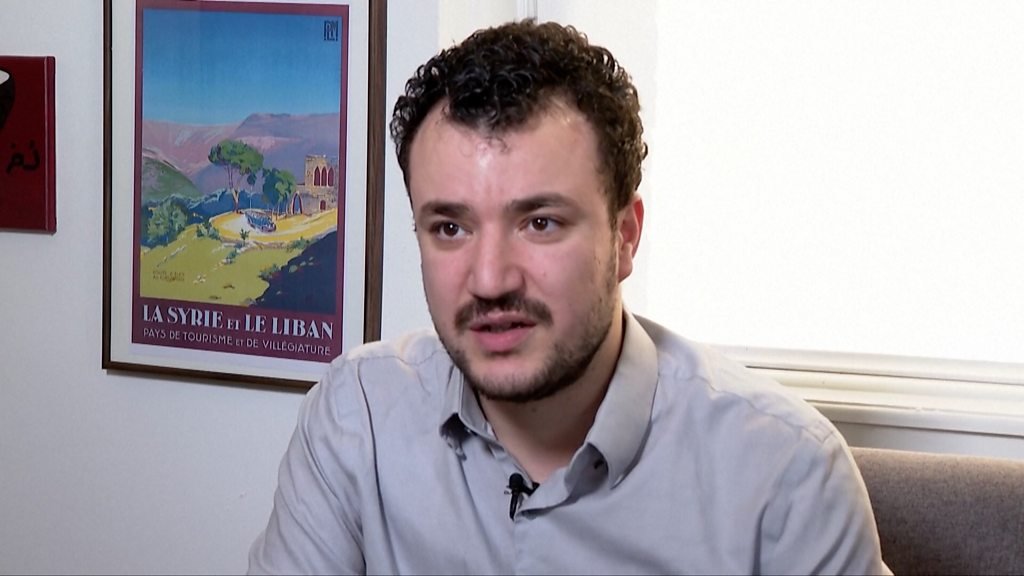Mahmoud Khalil, Detained during his wife’s pregnancy, Khalil accuses the Trump administration of false imprisonment, abuse of power, and targeting pro-Palestinian voices.
“This is something I will never forgive.”
As Mahmoud Khalil sat in his Manhattan apartment holding his 10-week-old son, Deen, he reflected on the hours spent pacing an ICE facility in Louisiana during the child’s birth. “I cannot describe the pain of that night,” he said.
Now, weeks after his release, the Palestinian activist has filed a $20 million claim against the Trump administration, citing false imprisonment, malicious prosecution, and defamation. The Federal Tort Claims Act filing names the Department of Homeland Security, U.S. Immigration and Customs Enforcement, and the State Department.
Also Read: American Teen Arrested in Antarctica During Unauthorized Landing
Retaliation for Protest, Mahmoud Khalil Says
Mahmoud Khalil, a recent Columbia University graduate and vocal pro-Palestinian activist, asserts the government sought to deport him for his involvement in campus protests. “They are abusing their power because they think they are untouchable,” Khalil stated. “Unless they feel there is some sort of accountability, it will continue to go unchecked.”
Rather than keep the settlement funds, Khalil pledged to share them with others affected by what he calls Trump’s “failed” attempt to silence pro-Palestinian voices. In lieu of financial compensation, he would also accept an apology and policy change.
“Effectively Kidnapped” in Plain Sight
The claim outlines Khalil’s arrest on March 8, when he was returning home with his wife, Noor Abdalla. Federal agents, in plainclothes and without a warrant, allegedly detained him without cause. He was then flown overnight to a remote ICE facility in Jena, Louisiana, which was “deliberately concealed” from his lawyers and family.
Inside the facility, Khalil says he was denied ulcer medication, subjected to harsh lights, and given “nearly inedible” food — losing 15 pounds in the process. “I cannot remember a night when I didn’t go to sleep hungry,” he said.
Meanwhile, the Trump administration celebrated the arrest, claiming Khalil and others had engaged in “pro-terrorist, anti-Semitic, anti-American activity.”
Khalil, who has repeatedly condemned antisemitism, has never been charged with any crime or linked to any terrorist group. “At some point, it becomes like reality TV,” he said. “It’s very absurd.”
Targeted for His Beliefs
A memo signed by Secretary of State Marco Rubio acknowledged that Khalil broke no laws but argued that his beliefs warranted deportation, as they could “undermine U.S. foreign policy interests.”
“My beliefs are not wanting my tax money or tuition going toward investments in weapons manufacturers for a genocide,” Khalil said. “It’s as simple as that.”
During his 104 days in detention, Khalil helped fellow detainees with paperwork and translation. “I’m pretty good at bureaucracy,” he said. Nights were spent playing card games and listening to stories from confused detainees. “This was one of the most heartbreaking moments,” he said. “People on the inside don’t know if they have any rights.”
Release and Retaliation
On June 20, a federal judge ordered his release, declaring the deportation efforts likely unconstitutional. However, Khalil now faces new allegations — this time, of misrepresenting information on his green card application. His lawyers call the charges “baseless and retaliatory.”
Post-release, Khalil lives with caution. He avoids crowds and keeps his outings brief, worried about more harassment or arrest. Yet he smiles when speaking about Deen’s first swim. “It was not very pleasant for him,” he laughed, “but I’m trying as much as possible to make up for the time with my son and my wife.”
Still Marching
Despite everything, Khalil remains outspoken. The day after his release, he led a march through Manhattan wearing a Palestinian flag. He plans to continue protesting Israel’s war on Gaza, where more than 57,000 Palestinians — half of them women and children — have died, according to Gaza’s Health Ministry.
When asked if he would have done anything differently, Khalil replied:
“We could’ve communicated better. We could’ve built more bridges with more people. But the core thing of opposing a genocide, I don’t think you can do that any differently. This is your moral imperative when you’re watching your people be slaughtered by the minute.”
Source: Full story originally reported by Los Angeles Times, APNews




